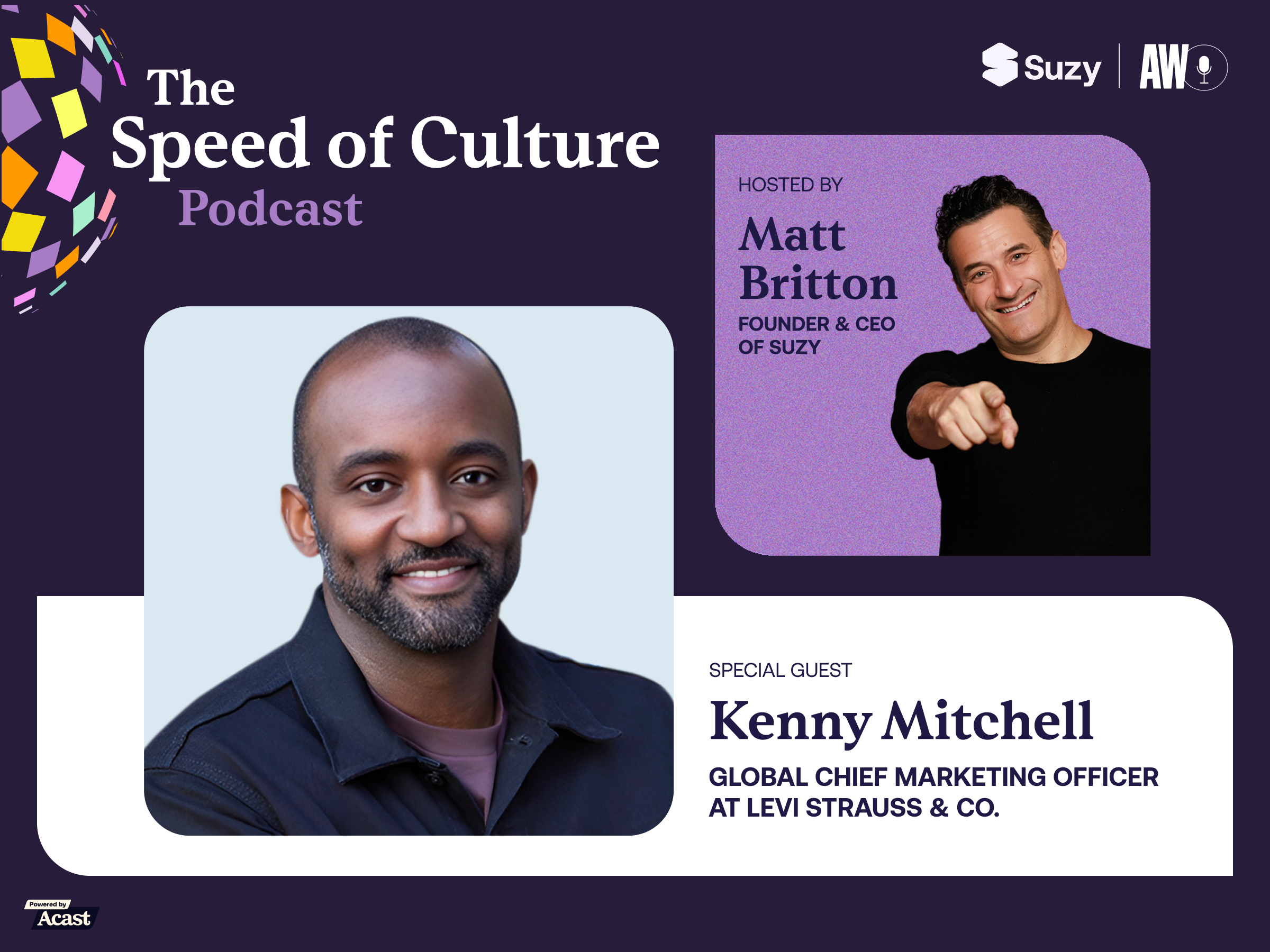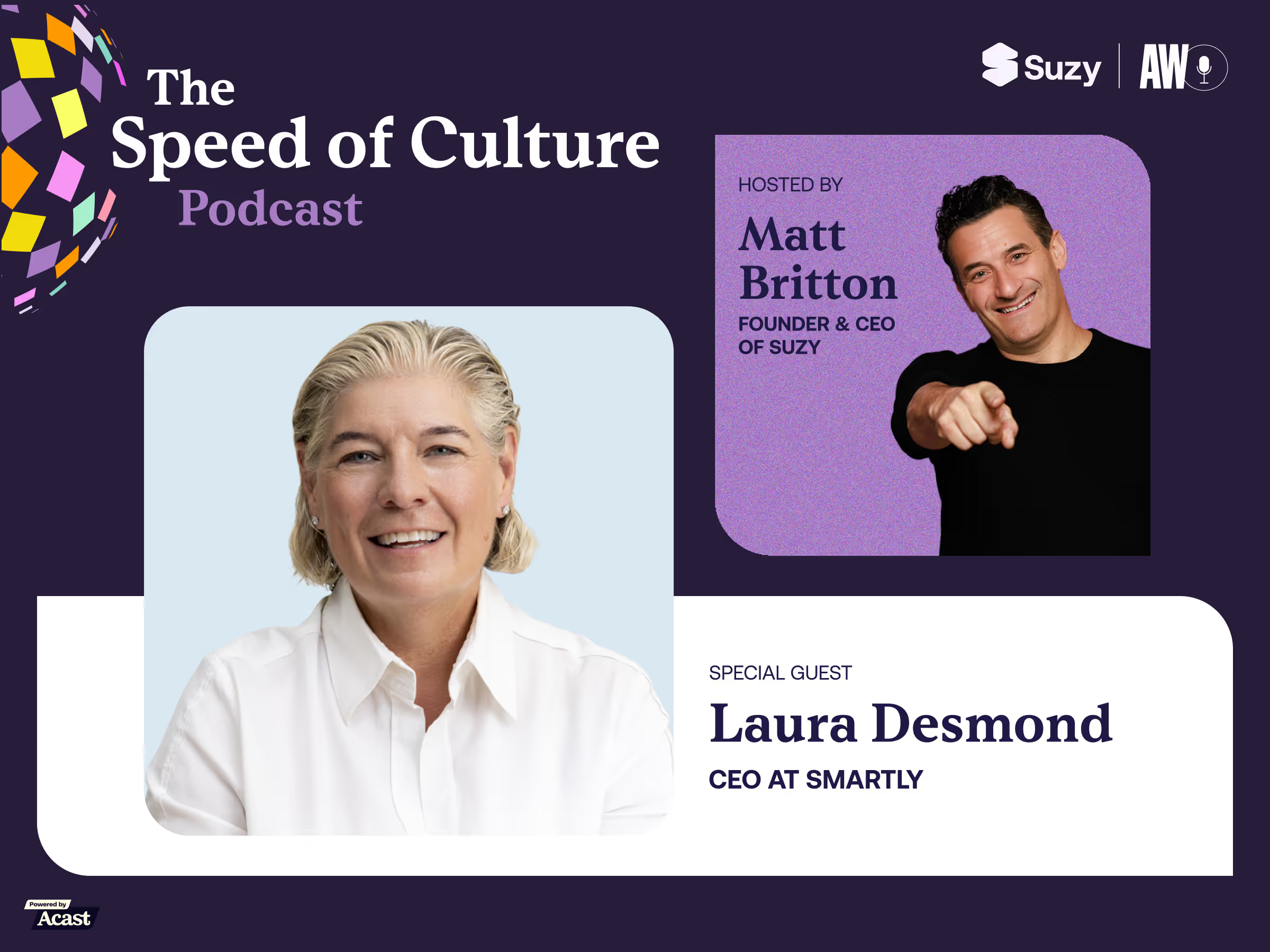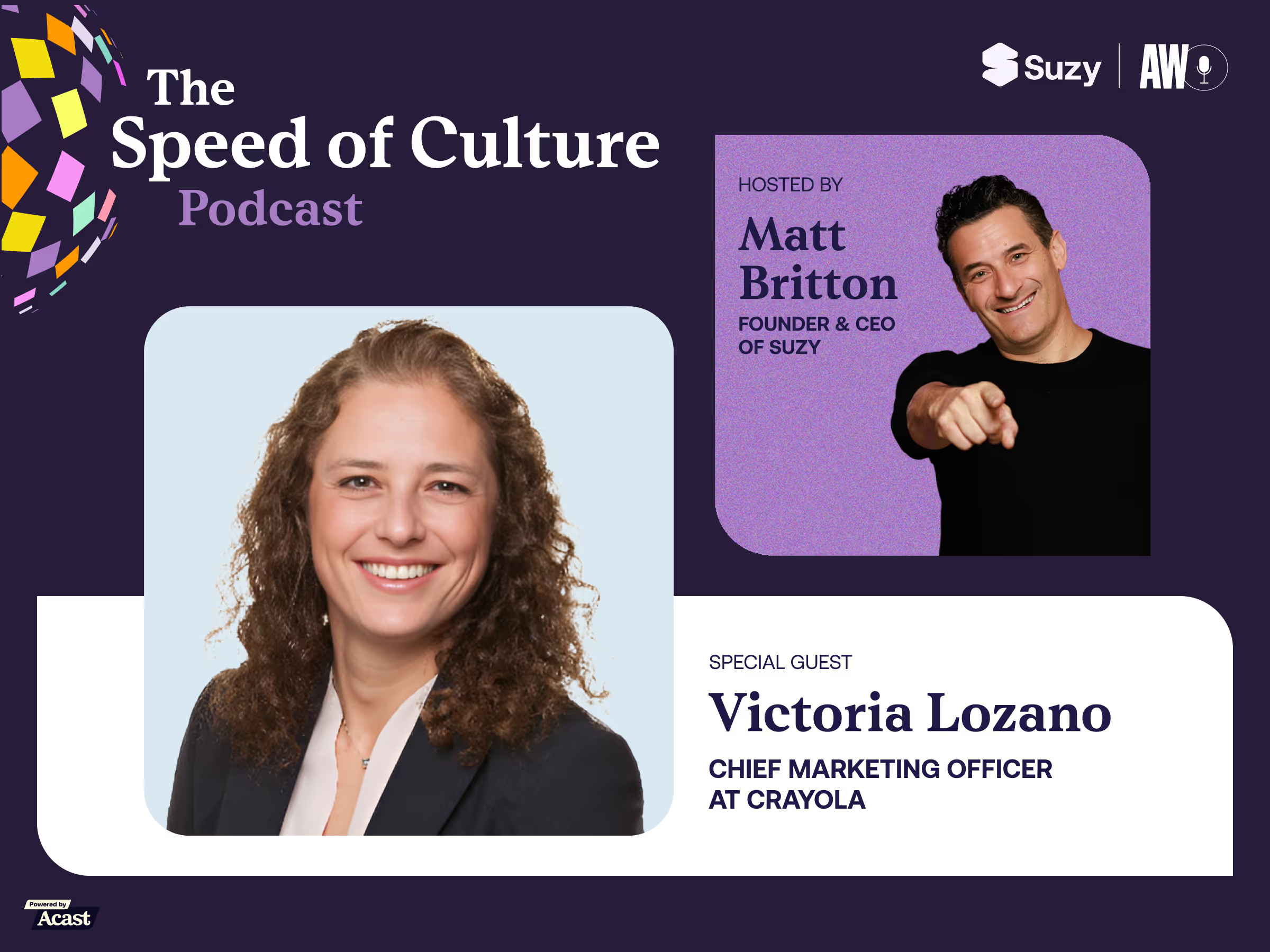How can brands enhance cultural resonance in 2024? Discover 3 key strategies to implement now.
"When I look into a brand, this is a brand that gets me. It's not just about the product that I want to buy, which is a separate and equally important topic. But it's really when the brand transpires its values and beliefs, and I look at that brand and say they understand who I am. I want to be part of that culture, where I feel I belong. That's how I define cultural resonance as well." - Fernando Bernardo, Director of Marketing, Ferrero
Are you ready to uncover the latest insights on branding strategies and cultural resonance?
Recently, Suzy’s EVP of Customer Success, Katy Emerson, led an insightful panel session titled "Media Mavericks: Amplifying Cultural Resonance in Branding Strategies" at the Brand Innovators Summit, hosted by Kraft. The session featured an exceptional lineup of industry leaders, including Fernando Bernardo, Director of Marketing at Ferrero; Alexandra Gaski, Director of Market Intelligence - Consumer Insights at McDonald's; and Pierson Curtis, Director, Marketing Strategy at H&R Block.
They shared valuable insights on the essence of cultural resonance in branding and how authenticity and consumer connection drive brand success. Top brands like McDonald's, Ferrero, and H&R Block discussed how they leverage digital platforms, co-creation, and micro-community engagement to enhance cultural relevance.
The discussion covered maintaining an authentic voice, creating effective content, and measuring the impact of culturally resonant strategies. This session was a must-attend for anyone looking to stay ahead in the ever-evolving world of branding. You can watch the recording of the event here, or explore these innovative approaches in our blog.
3 Key Highlights:
- Cultural Resonance and Authenticity: Cultural resonance is defined by how consumers perceive a brand and whether it aligns with their values and identity. Authenticity is crucial in creating cultural resonance, as it involves brands genuinely understanding and representing their consumers' values and beliefs. Fernando, highlighted how Optimum Nutrition resonates with him, blending his identity as a marketer and a consumer. He appreciates the brand's commitment to quality and its effective marketing strategies, which align with his professional standards and personal health goals, making him feel understood and valued. Alexandra, mentioned McDonald's challenge of being culturally relevant to a diverse audience, emphasizing the importance of consumers seeing themselves in the brand. She pointed out that McDonald's strives for authenticity by partnering with celebrities who are genuine fans, ensuring that their endorsements reflect real enthusiasm, thereby connecting with a diverse customer base on a personal level and making consumers feel represented and valued.
- Social Media as a Driver of Business Outcomes: Social media's role in driving concrete business outcomes was a key highlight discussed by the panel. Pierson from H&R Block shared how their targeted TikTok campaign not only increased favorability among Gen Z but also significantly boosted market share, demonstrating the platform's powerful influence on younger audiences. Alexandra emphasized that for McDonald's, social media channels often deliver the highest ROI. This is because users on these platforms are in a more receptive state, making them more likely to engage with the brand. Fernando pointed out that while Facebook remains effective for older consumers, platforms like Instagram, Twitter, and YouTube are essential for different types of storytelling and engagement. These insights underline the importance of selecting the right social media platforms to reach specific demographics and achieve measurable business results.
- Content Creation and Micro-Communities: Content creation that involves co-creation with consumers can significantly enhance cultural resonance. Fernando shared an example from his time at 3M, where they co-created the Embrace the Mess campaign for Scotch-Brite. This initiative involved engaging directly with pet owners, bringing sofas to Central Park, and featuring top Instagram dogs to highlight the product's utility in dealing with pet hair. This hands-on, consumer-driven approach led to a highly successful campaign and increased brand engagement. Alexandra emphasized the importance of leading with fan truths and connecting with micro-communities, such as anime fans or specific passion points, to be inclusive by being exclusive. This approach allows brands to resonate deeply with specific groups, fostering a stronger connection and relevance.
As consumer preferences evolve and new digital engagement methods emerge, mastering the strategies that foster genuine connections between brands and their audiences is vital. Dive into the intricate dynamics of authenticity, cultural relevance, and the impact of digital platforms in shaping brand perception.
For even more takeaways and industry insights, be sure to watch the full panel session today!
.webp)







